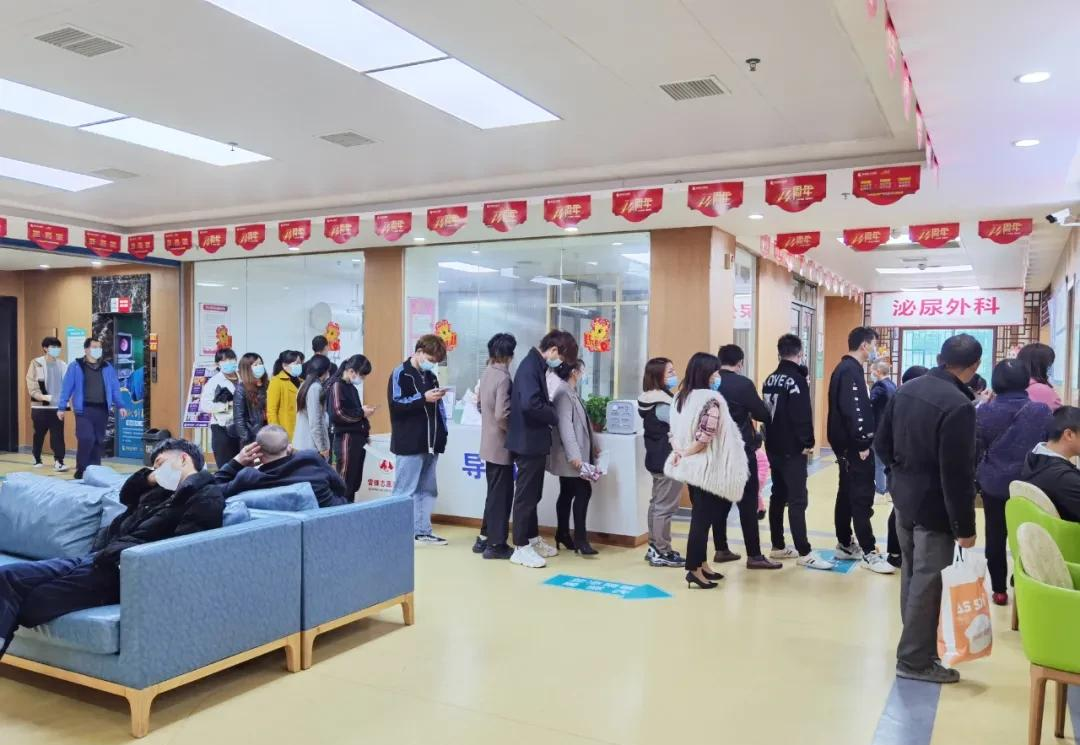Patient Grandpa Li, 75 years old, a villager in a village in Xiyang Dabuqiao, Loudi City, due to repeated urination frequency, urgency, accompanied by hematuria for 2 years, sometimes can not be solved by urination, and can not lie flat, lying down is very painful, 1 month before admission to the hospital, the condition worsened, to the Urology Department of Oriental Hospital, by B ultrasound, CT examination diagnosis: multiple bladder stones, double kidney cysts, prostatic hyperplasia, prostate calcification foci. He had been examined at several other hospitals, and the hospitals recommended that he undergo abdominal surgery. However, the patient's family was worried that Grandpa Li was old and probably could not afford open surgery, so he did not agree. Later, after being introduced by a friend, Loudi Oriental Hospital can carry out minimally invasive surgery without surgery, so he came to Oriental Hospital.

After the relevant examinations were perfected after admission, Zeng Liwei, vice president of Oriental Hospital, the most beautiful doctor in Loudi City, and a urology expert, after listening to the patients and their families, resolutely gave up the trans-abdominal surgery and transurethral stone removal, because the surgery was largely damaged to the patient, the postoperative recovery was slow, and there was a greater risk to the 75-year-old patient; and the transurethral stone removal needed to be done about 3 times, and the cost was high, which was obviously not ideal.
For the sake of patient safety, President Zeng Liwei decided to implement percutaneous cystouureteroscopic holmium laser lithotripsy for patients with lumbar rigid anesthesia. This kind of surgery is a minimally invasive operation, and it is also a procedure that can reduce patient pain and high safety in clinical applications in recent years, and it is a technology that has not yet been carried out in many hospitals. During the operation, a 5mm small hole was made in the patient's abdomen, and the F20 sheath was placed through the small hole, and the ureteroscope entered the bladder along the sheath, and 6 oval stones, the larger ones of which were about 3.5 cm ×3 cm, were then positioned with holmium lasers, and the stones were crushed and removed. Postoperative re-examination of plain abdominal radiographs shows that the original stones have disappeared and there are no residues. The procedure was painless throughout the procedure. The next day after the operation, the patient can get out of bed and move, and after a week, the catheter and drainage tube are successfully pulled out, and the symptoms of urinary frequency and urgency of the patient are significantly alleviated, and the urination returns to normal.
After the operation, the patient Grandpa Li benefited a lot, and he was seriously troubled by frequent urination and urgency all day, and he was relieved and happy at the moment! Everyone said that Dean Zeng was skilled, well-served, approachable, enthusiastic and responsible, an operation, no pain, little damage, helped him solve multiple huge stones.
On October 15, 2021, Grandpa Li sent a thank you banner to President Zeng Liwei, which impressively wrote "Noble Medical Ethics, Excellent Medical Skills", full of his and his family's trust in President Zeng Liwei and the recognition of Oriental Hospital!
After receiving the praise of patients, President Zeng Liwei said that the Oriental Hospital has been established for 15 years, and has successfully taken stone gravel for 40,000+ stone patients, the hospital not only has extracorporeal shock wave lithotripsy, but also matures to carry out holmium laser lithotripsy, percutaneous nephrolithotomy, fiber soft nephrolithotomy, air pressure ballistic lithotripsy, laparoscopic gallstone removal and other minimally invasive surgeries, without surgery, which greatly guarantees the safety of patients and reduces the pain of patients! Whether it is urethral stones, bladder stones, kidney stones, hepatobiliary stones, Oriental Hospital can be treated.
The most common clinical symptom of stones is pain, which is divided into three types, namely mild, moderate and severe. Usually stones cause standing water, which is generally swelling pain, that is, persistent swelling pain, sometimes light, sometimes heavy, the most common is renal colic caused by ureteral stones. This kind of colic is a knife-like pain in the lower abdomen, the patient is often pale, sweaty, sometimes accompanied by nausea, vomiting, sometimes pain radiating to the groin and perineum, this pain patients generally can not bear, need to go to the hospital immediately. In addition, if the stone is obstructed, it will cause urinary tract infection, hydronephrosis, frequent urination, urgency, painful urination and other symptoms. Some only appear once after the symptoms are relieved, so the patient relaxes his vigilance, there is no timely review, and the stone is not discharged, and finally leads to severe hydronephrosis, loss of kidney function, the need for nephrectomy, very regrettable. If there is obstruction on both sides of the ureter, it can also cause uremia.
Therefore, the general public is reminded that if the above symptoms occur, they should go to the hospital for examination in time, and must not ignore the stones because they are not painful for a while, so as not to cause future troubles. Treatment should be done as soon as possible after diagnosis of stones. (Chen Zeyu)